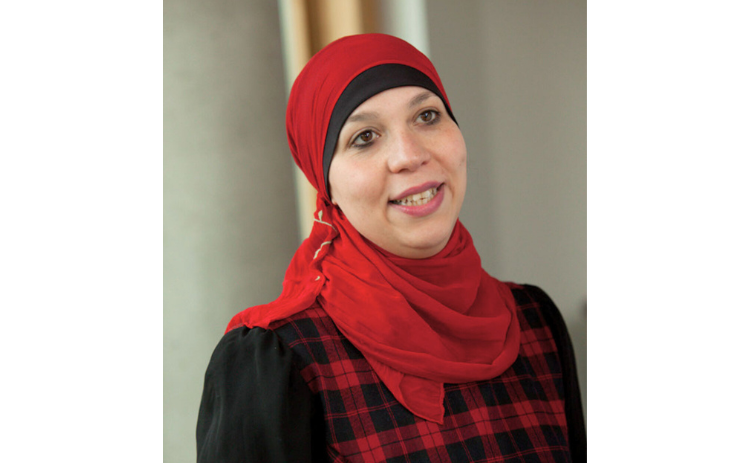Comment: Building Inclusive Research and Driving Real-World Impact through Engagement
Dr Neveen Abdelrehim, Senior Lecturer in Accounting at Newcastle University Business School, discusses her work with the UK BME Anti-Slavery Network (BASNET).
3 November 2025
The UK BME Anti-Slavery Network (BASNET) aims to strengthen engagement between academia, practitioners, and communities tackling modern slavery and human trafficking.
As a mentor in the BASNET Research Mentorship Programme, I play a central role in developing research capacity among early-career Black and Minority Ethnic (BME) researchers.
I wanted to get involved in this work as it aligns with my long-standing commitment to addressing inequality and amplifying voices that are often underrepresented in research and policy.
My academic focus has always examined how power, accountability, and ethics intersect in practice, particularly in areas where exploitation and marginalisation persist. Through BASNET, I saw a real opportunity to use research engagement to build capacity, create visibility for BME scholars, and connect academic knowledge with lived experience to inform practical change.

The importance of inclusivity: partnership and co-production
Through one-to-one guidance and ongoing collaboration, I help mentees design and execute high-quality, evidence-based studies that influence both policy and frontline practice. But engagement goes beyond academic supervision. It focuses on partnership, co-production, and shared ownership of research outcomes.
By connecting researchers with community organisations and advocacy networks, we can ensure that their findings address real challenges faced by BME-led groups and survivors. This model of engagement has helped bridge the gap between research and action, ensuring that academic work contributes directly to social change.
Challenging inequality through mentorship
The work we do through mentorship has also supported the development of projects that challenge systemic inequality and improve representation in the anti-slavery field. By fostering confidence and practical research skills, we’re enabling early-career scholars to produce research that not only informs but also shapes how organisations and policymakers respond to exploitation.
The impact of this engagement is already visible
Research produced through the mentorship programme has been shared with national stakeholders and used to inform strategies for prevention, advocacy, and survivor support. By creating a space where lived experience and academic insight meet, my work exemplifies how engagement and collaboration can drive meaningful and lasting impact.
Spotlight: research in action
As part of the BASNET Knowledge Mobilisation Programme, researchers Ruth Ogunji, Founder and Operations Manager of Blossom Foundation; Elohor Onoge, Director, Flourishing Vines Foundation CIC; and Judith Nkojih, lived experience expert, produced a study titled African Parenting Styles and the Vulnerability of Girls to Grooming into Trafficking and Modern Slavery.
The research examines how cultural parenting practices influence girls’ ability to detect, resist, or report grooming. It identifies several risk factors:
- authoritarian parenting that discourages questioning and emotional openness
- gendered expectations that promote compliance and caregiving, which groomers exploit
- adultification, where children are expected to take on adult roles, reducing emotional resilience and increasing exposure to harm
The study emphasises that prevention must begin within families and communities. It recommends promoting open communication, providing age-appropriate education, empowering girls through confidence and skills, involving fathers, and engaging community leaders.
This research embodies the value of engagement that my mentorship promotes. It brings together lived experience, academic inquiry, and community collaboration to produce knowledge that informs real change. By linking cultural understanding to practical action, it contributes directly to efforts to reduce grooming, strengthen family awareness, and protect vulnerable children.
Looking ahead
Going forward we want to expand this collaborative model to advance leadership pathways for black women in diaspora communities.
I am currently mentoring Dr Chioma Mgbeokwere, Director for Project Management at IBO Ladies in Diaspora Aid CIC, on her project titled Advancing Leadership Pathways for Black Women in Diaspora Communities: A Model for Inclusive Empowerment and Wellness.
This mentorship reflects our shared commitment to turning research into action and strengthening community-led leadership. Through this work, we aim to build lasting structures that promote empowerment, wellbeing, and representation for black women across diaspora networks.
